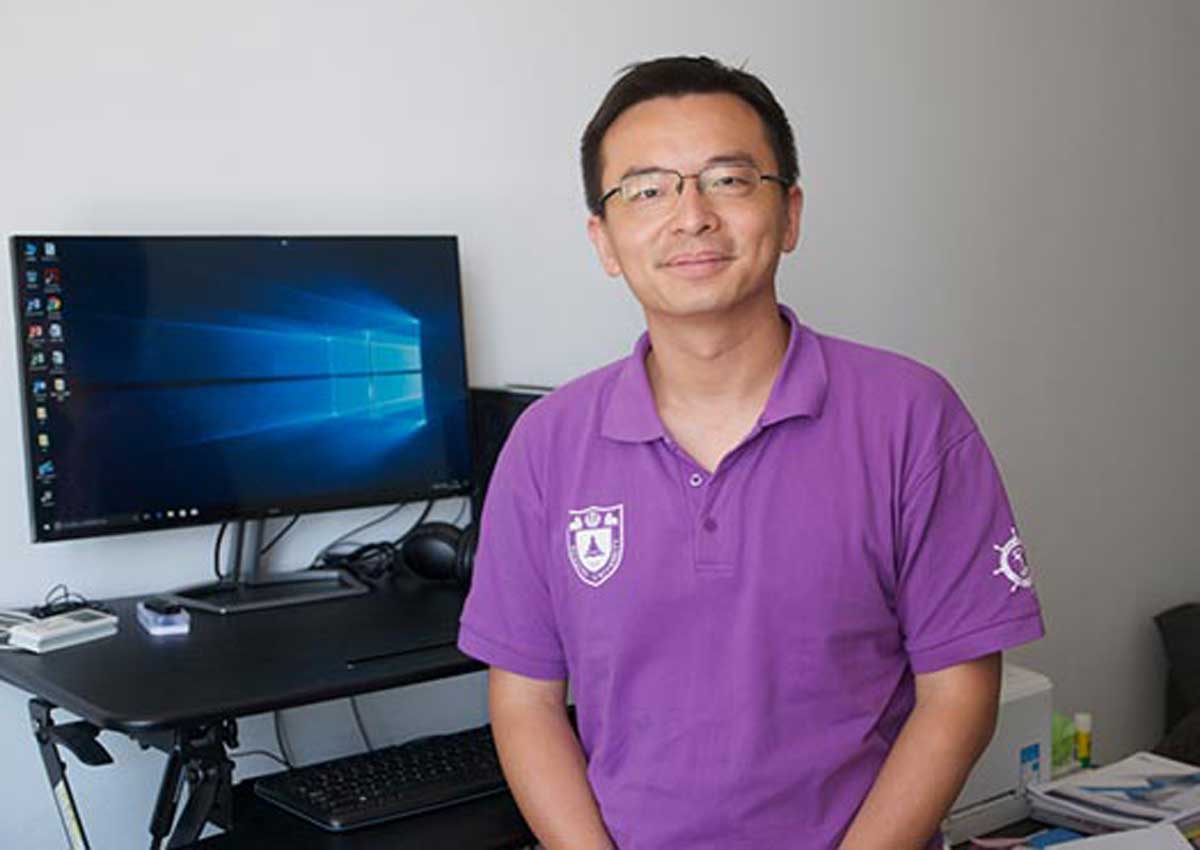Use mushrooms to purify water, says university professor

Mushrooms, wastewater and sunlight. For Nanjing University professor Zhu Jia, these three items hold the key to producing clean and fresh water by harnessing the power of the sun.
Mushrooms, with their umbrella-shaped, black porous caps, provide ample light absorption and room for water vapour to escape. Their fibrous stems help channel the water while the narrow cross sections suppress heat loss by limiting contact with the precious resource below.
Zhu and his team demonstrated thus that mushrooms could be used as efficient solar steam generators in a research paper published by science journal Advanced Materials in May.
They also made an artificial transpiration device that mimicked mushrooms for solar wastewater treatment-the water would evaporate, leaving pollutants behind. The steam would condense again to produce distilled drinking water. Chinese academic journal National Science Review published their research.
Their work points to providing safe drinking water for people living in remote and underdeveloped areas.
“Mushrooms generally grow in dark and damp places, so they probably don’t know their hidden talent in using solar energy to provide clean water,” jokes the 35-year-old scientist.
“The idea of using mushrooms came from a team discussion,” adds Zhu. “As I was sketching the conical top and thin tube of an artificial transpiration device, one student said, ‘Doesn’t that resemble a mushroom?'”
His team obtained some mushrooms from the market and tested out their new idea. They found out that mushrooms have a solar-steam conversion efficiency rate of 60 to 70 per cent, compared with 85 per cent offered by the artificial transpiration device.
Zhu has been focusing on the field as early as September 2013, when he returned to China after his post-doctoral work at the University of California, Berkeley, trying to improve the efficiency of solar thermal conversion by using new materials and new engineering designs.
Before inventing the artificial transpiration device, Zhu’s team had developed a new material containing aluminium nanoparticles in a porous membrane. The material floats on water and absorbs a wide wavelength of sunlight, using solar energy to generate heat to vaporize water.
When their research findings were published in the Nature Photonics journal in 2016, Zhu received email from around the world, asking to co-operate with him to apply the technology.
Benny Freeman, a water desalination expert at the University of Texas at Austin, said on the Science journal website that Zhu’s material “could be a game changer”, as large desalination plants use fossil fuels, making them unaffordable for many developing countries and households. Zhu’s work could offer a way for individuals to purify water at significantly lower cost.
In 2016, Zhu was selected by the MIT Technology Review magazine as one of the world’s 35 young innovators for the potential application of his research to desalinate seawater or treat polluted water.
“It only needs two things. The first is water-no matter what kind of water you have-and the second is the sun,” says Zhu.
Zhu studied physics in Nanjing University from 1999 to 2003. He recalls listening to a lecture in the university given by Samuel Chao Chung Ting, who is a Chinese-American Nobel Prize laureate in physics.
“Mr Ting inspired me as he spoke about what’s at the frontier of physics,” recalls Zhu.
After graduating from Nanjing University, Zhu attended a short exchange programme to Hong Kong. He then applied for PhD studies at Stanford University in the United States, where he studied nano materials with Yi Cui from 2005 to 2010.
“I was one of Cui’s first students and learned a lot from him, not only about research but also about how to build a research team,” says Zhu. “It proved to be very helpful when I was building my lab in Nanjing University.”
Zhu’s team boasts about 20 researchers who focus on creating high-efficiency solar thermal conversion devices with nano materials.
“My research has potential applications in energy and the environment. There is a lot of focus and government support in these areas,” says Zhu.
“That’s one of the main reasons why I came back to China.”
Zhu had already visited some universities in China in early 2013 when Chen Jun, the chancellor of Zhu’s alma mater, Nanjing University, invited him to join its newly established school of engineering and applied sciences.
“To grow with a school sounded exciting to me,” says Zhu.
When Zhu Shining, an academician of the Chinese Academy of Sciences, told Zhu Jia that he “shouldn’t come back only when everything is perfect”, he made up his mind to return.
Zhu Jia returned to Nanjing through the Young Thousand Talents programme, which recruits young scientists from overseas.
“My work will be more meaningful when it becomes part of a larger cause-to improve the science and technology of my country,” he says.
Published at Sun, 10 Sep 2017 04:00:00 +0000





